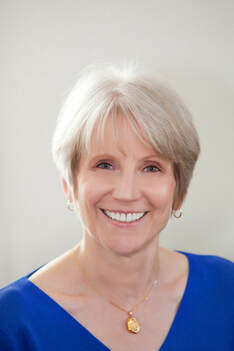Plenary Session & Wellness Presenter ~ Lois Svard
|
Pianist Lois Svard has received critical acclaim for her performances and recordings of contemporary American piano music. She is also well-known for her work in applying current neuroscience research to the study and performance of music. She has presented her work at numerous colleges and universities and at national science conferences and at national and international music conferences including ISME, MTNA, the World Piano Pedagogy Conference, the London International Piano Symposium and the European Piano Teachers Association. She has taught a university course on neuroscience and music and writes The Musician’s Brain, a blog that has introduced readers in more than 120 countries to some of the latest research in neuroscience and music.
Svard received her DMA from the Peabody Institute of the Johns Hopkins University and is Professor of Music Emerita at Bucknell University in Lewisburg, Pennsylvania, where she received the 2007 Lindback Award for Distinguished Teaching and the 2014 Artistic Achievement Award. Website: https://loissvard.com/bio-2/ |
Plenary Session Description
The Musical World of Infants
We tend to think of music as something that we learn, and that somewhere around the age of 5 or 6 is a great time to begin learning music. But there is no age barrier to learning music. Infants are born with amazing melodic and rhythmic abilities, unfortunately often lost by the age of one because we don’t nurture those abilities. We don’t even realize infants have them. We need to help every infant become the musical person they are by (forgetting the concept of appropriate age and) changing the “how” and “when” of teaching music.
We tend to think of music as something that we learn, and that somewhere around the age of 5 or 6 is a great time to begin learning music. But there is no age barrier to learning music. Infants are born with amazing melodic and rhythmic abilities, unfortunately often lost by the age of one because we don’t nurture those abilities. We don’t even realize infants have them. We need to help every infant become the musical person they are by (forgetting the concept of appropriate age and) changing the “how” and “when” of teaching music.
Wellness Committee Presentation
Sleep and Exercise: The Unsung Practice Strategies
Students tend to be dismissive of sleep, always assuming they can get by on less. But the latest research indicates that we need to ramp them up, not just to stay healthy, but also as good practice strategies. Sleep and exercise both have a role in preparing our brains to encode new information as well as to consolidate what we have already learned. They also have a role in warding off stress, which keeps many of us from performing at our best. So sleep and exercise impact all parts of the learning – memory – performance cycle, and may be the best practice strategies we have.
Students tend to be dismissive of sleep, always assuming they can get by on less. But the latest research indicates that we need to ramp them up, not just to stay healthy, but also as good practice strategies. Sleep and exercise both have a role in preparing our brains to encode new information as well as to consolidate what we have already learned. They also have a role in warding off stress, which keeps many of us from performing at our best. So sleep and exercise impact all parts of the learning – memory – performance cycle, and may be the best practice strategies we have.

